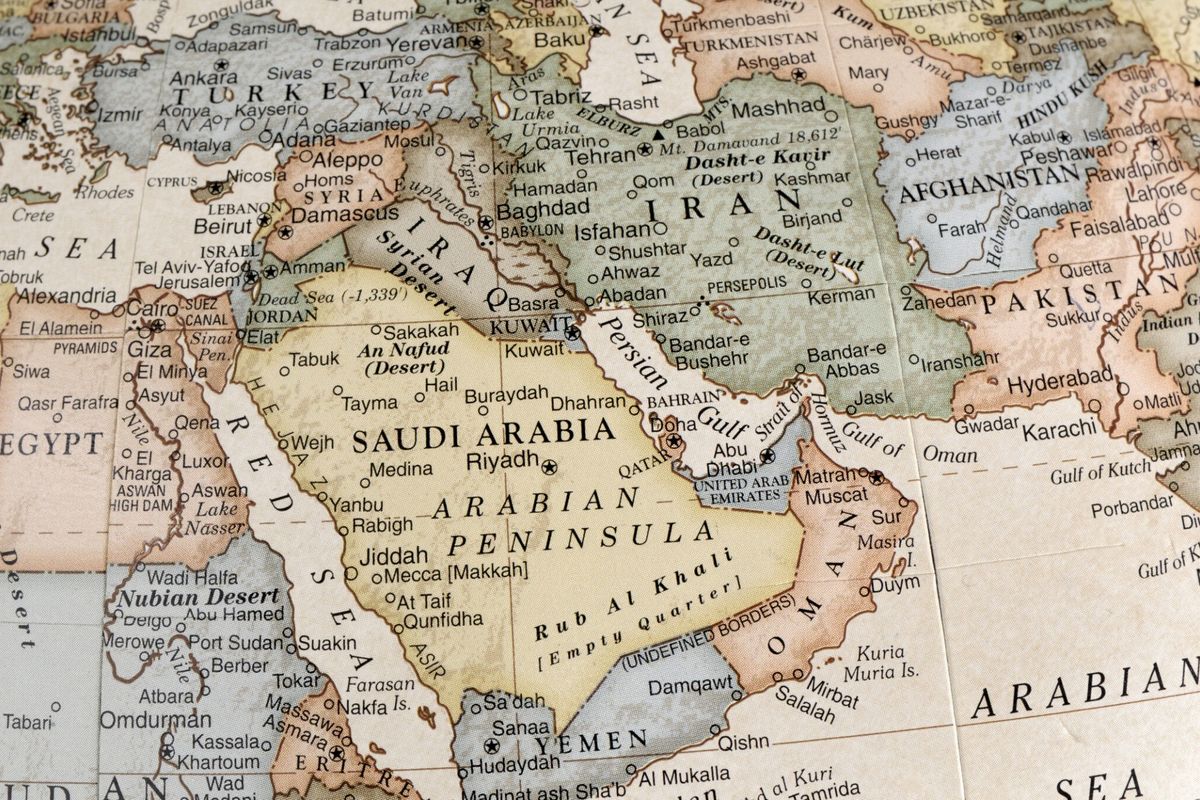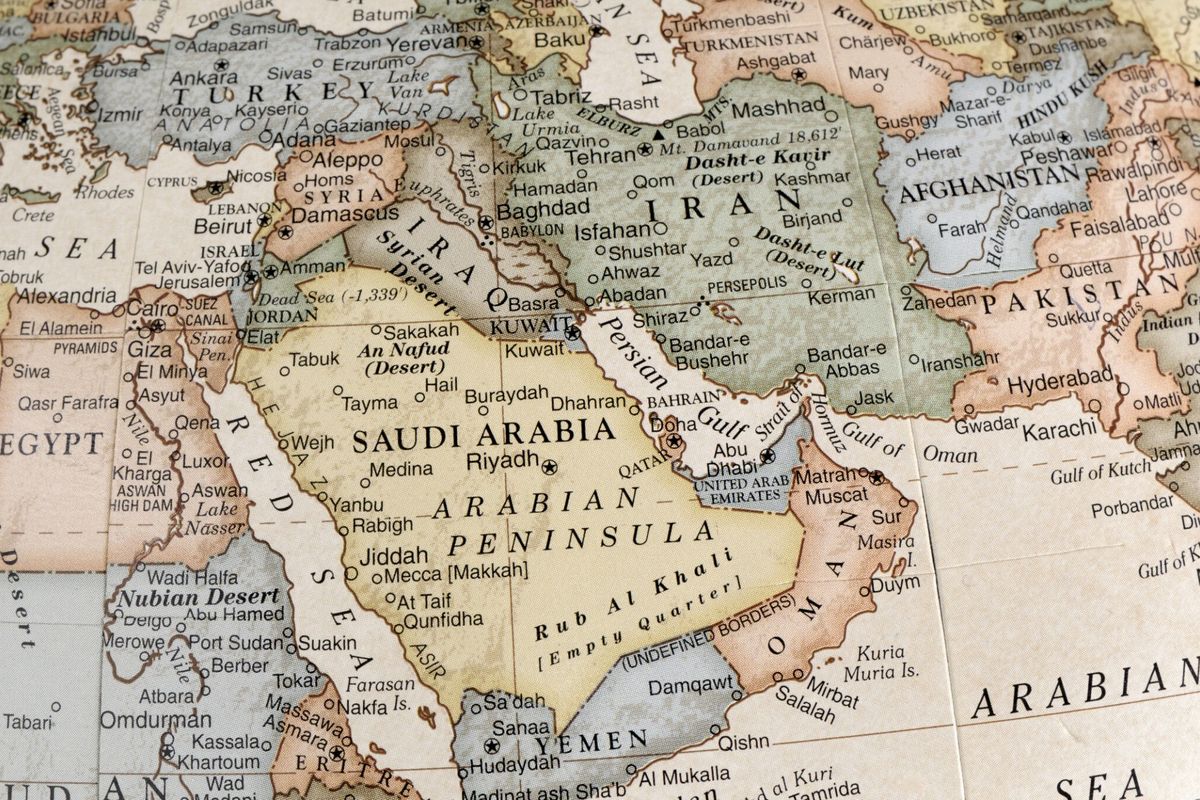The dispute between Qatar and its Arab neighbors has now entered its fourth week, causing an uptick in tension throughout the Middle East. The Cipher Brief’s Bennett Seftel spoke with Marcelle Wahba, former U.S. Ambassador to the United Arab Emirates, about the reasons behind Qatar’s isolation as well as why Qatar has elected to pursue a controversial foreign policy approach.
The Cipher Brief: Historically, what has been Qatar’s connection to the Muslim Brotherhood?
Marcelle Wahba: Qatar is a conservative Sunni Wahhabi state ruled by the Al Thani family. Since its independence in 1971, Qatar has maintained connections with a broad range of Islamists. Ties to the Muslim Brotherhood increased in the aftermath of the Arab Spring, when the Qataris provided extensive financial and political support in hopes that the Brotherhood would become the new regional power replacing autocratic regimes in countries like Egypt, Tunisia, and Libya.
TCB: Qatar maintains ties to the Muslim Brotherhood and houses leaders of the brotherhood and affiliated organizations, such as Hamas. How do ties to the Brotherhood benefit Qatar?
Wahba: The Qataris see their ties to Islamists, like the Muslim Brotherhood, as a way of maintaining and gaining influence in countries where these organizations are key players or engaged in governing, such as Hamas in Gaza and Ennahda in Tunisia. Qatar expelled some of the Brotherhood leadership from Doha in 2014 following a diplomatic crisis with some of its Gulf Cooperation Council neighbors over Qatar’s continued support for and hosting of Brotherhood leaders after they were ousted from Egypt.
The Qataris also agreed to lower the Brotherhood profile on the influential Al Jazeera Arabic [broadcast network], but that commitment did not last long. Qatar’s powerful media platform constantly features Islamist extremists that use Al Jazeera Arabic and other media outlets to not only espouse extremist ideology but also harshly criticize Qatar’s GCC neighbors and countries like Egypt. The potential impact of Qatar’s influential media on radicalization of audiences throughout the Middle East is a huge concern for stability in the region at a time when the Islamic State in Iraq and the Levant [ISIL] and al Qaeda remain active in war-torn countries.
TCB: Several Gulf countries recently severed relations to Qatar, primarily due its ties to Iran. Are Qatar’s interactions with Iran limited to economic cooperation? Why have these policies been enacted on Qatar as opposed to other countries in the region (possibly Oman) who also maintain ties to Iran and may have even provided transit for Iranian weapons to reach Houthis in Yemen?
Wahba: In my view, the embargo of Qatar by its neighbors is primarily due to concerns over its financial and political support for extremists and the use of its soft power to promote an ideology that is seen as a threat to regional stability.
An additional concern is Qatar’s relations with Iran. Qatar shares the world’s largest gas field with Iran and therefore enjoys a non-confrontational relationship that allows both parties to exploit this resource as a significant source of revenue. Saudi Arabia and the United Arab Emirates believe the Qataris go beyond what is necessary to maintain their economic interests with Iran by quietly, but actively, undermining efforts by Saudi Arabia and the UAE to push back on Iran’s destabilizing behavior in the region.
The Omanis have always had strong ties with Iran and have used those ties to support U.S. interests on several occasions. They acted quickly and decisively to stem the transit of weapons through their territory to the Houthis in Yemen.
TCB: How do we resolve this crisis? Why have these events unfolded now? Have the Gulf countries clearly stated what Qatar has done wrong and how to fix it?
Wahba: This crisis has a long history that dates back to the late 1990s when Qatar’s former emir, Sheikh Hamad al-Thani, the current emir’s father, began to carve out an independent foreign policy for his small country and end its subservience to Saudi Arabia. During his reign, Qatar allied itself with and financially supported Islamist movements, and reached out to enhance ties with Iran and Israel. Hamad oversaw the development of Qatar’s natural gas export capacity, which today comprises 30 percent of global production. He and his wife, Sheikha Moza, began the foundations of Qatar’s soft power by establishing Al Jazeera Arabic and the educational Qatar Foundation in 1995-1996.
In my view, resolution of the crisis will require Qatar’s compromise on a number of key issues to appease its stronger and larger neighbors. Some of these concerns are shared by the United States, including the issues of terrorist financing and support for Islamist extremists, such as housing a number of individuals who are on U.S. and UN designated terrorist lists. In addition, Qatar will need to limit the use of Al Jazeera as a platform for extremist individuals who not only radicalize domestic audiences but also openly criticize the leadership of neighboring countries.
Reports surfaced last week that Saudi Arabia, the UAE, Egypt, and Bahrain provided Qatar, through the Kuwaitis, a list of their demands to end the embargo. U.S. Secretary of State Rex Tillerson had urged these countries to expedite the process by providing clear documentation of their concerns and advised them to make their demands “actionable.” Following publication of the list of demands, Tillerson said that “some of the elements will be very difficult for Qatar to meet,” while noting “significant areas which provide a basis for ongoing dialogue.”
TCB: What is Qatar’s role in the GCC? How will recent events impact its role?
Wahba: By virtue of the idiosyncratic policies its leadership has adopted over the years, Qatar has long been seen as an outlier within the GCC. As noted, its conduct has frequently irked Saudi Arabia, leading to border skirmishes in 1992, a break in diplomatic relations 10 years later, and an even deeper and broader fissure in 2014 resulting from unhappiness with Qatar’s support for the popular rebellions that swept the region during the Arab Spring. This crisis is the most severe the GCC has weathered since it was established in 1981, and it is almost certain the organization that emerges from this episode will be weaker, less unified, and less likely to work together effectively to address regional security challenges.
TCB: Qatar has been accused of financially supporting terrorist groups such as al Qaeda and ISIS, in addition to Hamas. Is there any proof of direct links between Qatar and these groups? If so, what incentive is there for Qatar to continue financing them?
Wahba: According to the U.S. government, there are a number of U.S. and UN designated figures who continue to reside openly in Doha. Both the U.S. Treasury and State departments have produced detailed reports in this regard on the GCC countries, including Qatar.
TCB: Could recent events and Qatar’s isolation ultimately draw Qatar closer to Iran? What would be the ramifications of that?
Wahba: While food shipments from Iran to Qatar have been featured widely in the media since the embargo was imposed, thus far we have not seen any clear signs of Qatar drawing closer to Iran. Given that Qatar’s ruling family members are Wahhabis, they are not natural allies with Iran, as is the case with Turkey, another conservative Sunni Muslim government with close ties to the Muslim Brotherhood. However, if the crisis is prolonged with Qatar increasingly isolated, that may change.













